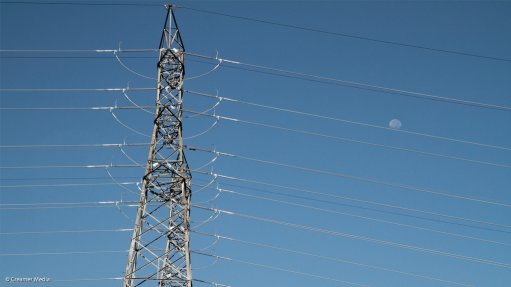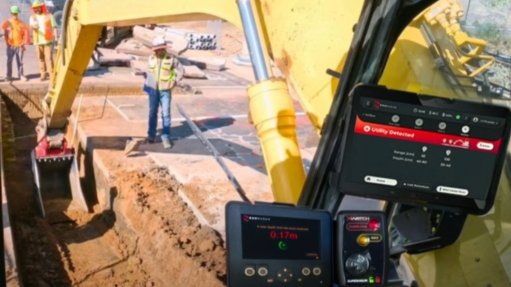Local sector facing pressures


TAFADZWA CHIBANGUZA The trends driving the steel and engineering sector’s performance – domestic economic growth and gross fixed capital formation – have recorded poor outcomes
Amid power outages, poor service delivery, a depressed global economic environment and a declining domestic economy, the South African steel and engineering sector is described as a “sector in distress”, with supply-side and demand-side pressures becoming increasingly prevalent, says Steel and Engineering Industries Federation of Southern Africa (Seifsa) COO Tafadzwa Chibanguza.
He notes that the trends driving the sector’s performance – domestic economic growth and gross fixed capital formation – have recorded poor outcomes.
This has been compounded by slower global economic growth – as a result of higher inflation and the elevated interest rate cycle – mostly affecting African countries, which comprise the steel and engineering sector’s largest export market.
“These factors have adverse implications for the demand-side of the equation.”
In terms of supply-side, the electricity crisis presents the most immediate and severe binding constraint on production, while the logistical challenges pertaining to rail and port limit the prospects of external trade, particularly seaborne.
Chibanguza estimates that production in the local sector will contract by 5.3% for the 2023 calendar year, compounding the already evident long-run rate of contraction.
“We are living in unprecedented times. The future lies in developing a dialogue around recovering from a struggling economy, a beleaguered sector, reducing the unemployment rate, clawing our way out of sub-investment status, restoring credibility to our prosecuting authorities, fixing our infrastructure and introducing sound economic policies centred on creating inclusive growth,” adds Seifsa CEO Lucio Trentini.
He contends that current challenges are exacerbated by the difficulty of removing barriers hindering the competitiveness of local manufacturers, and increasing high-quality infrastructure investment.
Fast-tracking the development of cleaner energy production technologies will bolster growth while limiting environmental damage. This will require increased investment in renewable energy and other low-carbon technologies from a financial and policy perspective.
“The extent of meaningful progress made on promised structural reforms is key to solving these challenges. After almost a decade of low growth, declining investment and rising unemployment, the country needs a bold implementation of reforms to face mounting challenges and restore the economy’s growth potential,” he says.
Trentini argues that the business sector has a significant role to play in engaging social partners to hold government accountable while driving a partnership with the State that provides capacity for mutual growth.
He notes that collaboration can help to ensure an effective supply of water, improved rail and port logistics, resolving the energy crisis, investment in critical infrastructure projects and the combatting of crime.
“It is up to business, therefore, to provide leadership. Business must come to the table and constructively engage government in a way that holds it to account while building a partnership for mutual growth.”
Successful collaboration between the private and public sectors was notable during the Covid-19 pandemic, when business and government set up the Solidarity Fund and collaborated in the procurement of health equipment and the vaccine roll-out programme, for which the business sector made its resources available.
Trentini says this collaboration acts as a model for reigniting economic growth and recovery for the metals and engineering sector.
“Without being blindly optimistic and without minimising the underlying challenges, we all have a collective duty to recalibrate some of our personal and country narratives.
“The ball remains very much in our court on convincing government to urgently speed up infrastructure spend, drive localisation and significantly boost demand. We should pull together to ensure our country realises the economic potential it and all its citizens deserve.”
Education Initiatives
To tackle unemployment, inequality and poverty in South Africa, Trentini argues that the country needs to use, absorb and develop local skills to achieve economic progress.
To this end, Seifsa established its training centre in 1983 to empower local youth and adults through the development of modernised technical education and training programmes, in support of South Africa’s commitment to tackling rising unemployment.
“In pursuit of this goal, emphasis must be placed on training in key technical trades for our youth and adults. It is no secret that, to create a skilled and knowledgeable workforce, technical knowledge and skills must be imparted,” he says.
The Seifsa Training Centre – known as a specialist apprentice training and trade test centre, overseen and managed by specialist advisory, consulting, project management agency Thuthukisa Advisory and Consulting – offers a unique one-stop integrated, multiple benefit offering in terms of skills development and business solutions.
The centre offers accredited apprenticeships and learnerships; technical and business skills development programmes; safety and compliance for artisans, production personnel and management; business incubation and support; entrepreneurship programmes; consulting and project management; and corporate programmes.
It aims to continue developing the knowledge and skills pipeline for the metals and engineering sector. Trentini notes that 83% of the learners who graduate from the institution are readily absorbed and/or employed in the sector.
“The Seifsa of today and tomorrow is fully committed to doing everything to ensure that the centre achieves its goals,” Trentini concludes.
Article Enquiry
Email Article
Save Article
Feedback
To advertise email advertising@creamermedia.co.za or click here
Press Office
Announcements
What's On
Subscribe to improve your user experience...
Option 1 (equivalent of R125 a month):
Receive a weekly copy of Creamer Media's Engineering News & Mining Weekly magazine
(print copy for those in South Africa and e-magazine for those outside of South Africa)
Receive daily email newsletters
Access to full search results
Access archive of magazine back copies
Access to Projects in Progress
Access to ONE Research Report of your choice in PDF format
Option 2 (equivalent of R375 a month):
All benefits from Option 1
PLUS
Access to Creamer Media's Research Channel Africa for ALL Research Reports, in PDF format, on various industrial and mining sectors
including Electricity; Water; Energy Transition; Hydrogen; Roads, Rail and Ports; Coal; Gold; Platinum; Battery Metals; etc.
Already a subscriber?
Forgotten your password?
Receive weekly copy of Creamer Media's Engineering News & Mining Weekly magazine (print copy for those in South Africa and e-magazine for those outside of South Africa)
➕
Recieve daily email newsletters
➕
Access to full search results
➕
Access archive of magazine back copies
➕
Access to Projects in Progress
➕
Access to ONE Research Report of your choice in PDF format
RESEARCH CHANNEL AFRICA
R4500 (equivalent of R375 a month)
SUBSCRIBEAll benefits from Option 1
➕
Access to Creamer Media's Research Channel Africa for ALL Research Reports on various industrial and mining sectors, in PDF format, including on:
Electricity
➕
Water
➕
Energy Transition
➕
Hydrogen
➕
Roads, Rail and Ports
➕
Coal
➕
Gold
➕
Platinum
➕
Battery Metals
➕
etc.
Receive all benefits from Option 1 or Option 2 delivered to numerous people at your company
➕
Multiple User names and Passwords for simultaneous log-ins
➕
Intranet integration access to all in your organisation


















